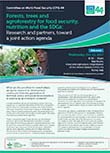Forests, trees and agroforestry for food security, nutrition and the SDGs: Research and partners, toward a joint action agenda
Forests and trees are key to achieving food and nutrition security objectives, to meet the objectives of the Paris Agreement and achieve the Sustainable Development Goals (SDGs). Although they have critical roles to play in landscapes and value chains toward sustainable agricultural development, forests and trees have historically not been given the place they deserve within these agendas. What are the priorities for stakeholders along the research to development continuum, from the generation of technical, policy and governance solutions to scaling-up according to contexts?
This side event, organized by the CGIAR Research Program on Forests, Trees and Agroforestry (FTA), Food and Agriculture Organization of the United Nations (FAO), The Netherlands, Tropenbos International, Swedish International Agricultural Network Initiative (SIANI) and Mars, Incorporated, will discuss the expectations of stakeholders, from generating technical, policy and governance solutions, to scaling up according to contexts. This will help define the priorities of research for development and of national and international partners, in support of stakeholders’ needs to implement the Committee on World Food Security’s (CFS) action agenda.
The event will directly contribute to the implementation agenda of CFS44’s discussions on sustainable forestry for food security and nutrition, with a focus on research for development and the scaling up and out of solutions. In the follow-up from the CFS discussions, this event will shape an even stronger and more concrete global agenda for forests, trees and agroforestry, and relevant national and international partnership initiatives along the research-development-implementation at scale continuum and to envisage linkages and synergies between them.
The session is expected to contribute to:
- Illustrating how major initiatives intend to position themselves, enhance their synergies, and better work with all stakeholders to implement the CFS recommendations on sustainable forestry for food security and nutrition
- Knowledge sharing and clarified stakeholder expectations in terms of priority demands toward research and development partners
- The identification of ways and means for better articulation between major international initiatives along the research to development and action continuum.
- The identification of priority demands toward research and inputs to FTA’s priorities, and those of all its partners, as the program enters its second phase
For more information, download the session flyer.
Agenda
| Moderated by: | |
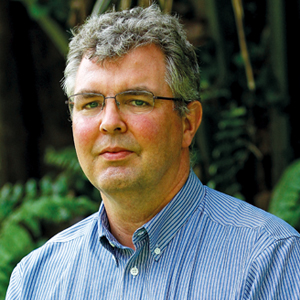 |
Peter Holmgren
Director General, Center for International Forestry Research (CIFOR) Appointed in 2012, Dr. Peter Holmgren is the Director General of the Center for International Forestry Research (CIFOR), where he leads a team of more than 200 scientists and staff operating together with partner institutions in over 40 countries. Under his leadership, CIFOR updated its strategy in 2016, emphasizing the role of forestry in achieving each of the 17 Sustainable Development Goals. Dr. Holmgren has a PhD in Forestry and 26 years of experience in international forestry and agriculture. Prior to CIFOR, Dr. Holmgren worked at the Food and Agriculture Organization (FAO), where he led FAO’s work on climate change and its contributions to the UNFCCC process. While at FAO he also coordinated the Global Forest Resources Assessment, played a leading role in establishing the UN-REDD program and led the development of the Climate Smart Agriculture concept. Dr. Holmgren is credited for leading the dialogue to enhance and broaden the role of forestry in the Global Development Agenda to address the major challenges of our time: poverty, food security, climate change and green economy. An early champion of the landscape approach, Dr. Holmgren launched the Global Landscapes Forum, which is today the world’s largest conference on integrated land use. |
| Introduction by: | |
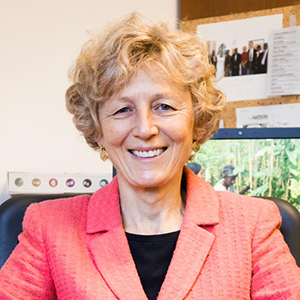 |
Eva Müller
Director, FAO’s Forestry Policy and Resources Division Eva Muller has 35 years of experience in forestry development, mainly in developing countries. She has worked extensively in Africa, Latin America and Asia. Before joining the Food and Agriculture Organization of the United Nations (FAO) in 2004, she was assistant director for reforestation and forest management of the International Tropical Timber Organization (ITTO). Currently she is director of the Forestry Policy and Resources Division at FAO Headquarters in Rome. Ms. Muller has a Master’s Degree in Forestry from Yale University in the US and a PhD in Natural Resources from the University of Hamburg in Germany. |
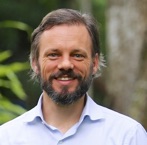 |
Vincent Gitz
Director, FTA Vincent Gitz is the Director of the CGIAR Research Program on Forests, Trees and Agroforestry (FTA). An engineer of Ecole Polytechnique (1994) in France, he holds a PhD from AgroParisTech on land use and global climate policies, which was awarded the Le Monde prize for academic research. He has a background in earth sciences and natural resource and development economics. He has previously worked in research for CIRED and CIRAD, in policy-making, and at the interface between the two. He served as advisor for sustainable development and research to the French agriculture and fisheries minister, Michel Barnier, from 2007-2009, and in 2016 was assistant director for food policy at the French Ministry of Agriculture, Agrifood and Forests. From 2010-2015, he was coordinator of the High Level Panel of Experts on Food Security and Nutrition (HLPE), the science-policy interface of the United Nation’s Committee on World Food Security (CFS). He has published in several fields related to sustainable development issues, from energy and development economics to earth and environmental sciences to nutrition. |
| Panel discussion: | |
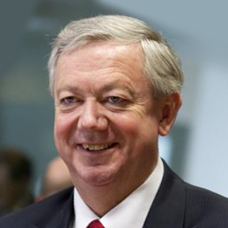 |
HE Ambassador Hans Hoogeveen
Permanent Representative of the Netherlands to FAO Hans Hoogeveen serves as Ambassador/Permanent Representative of the Netherlands to the UN Food and Agriculture Organization (FAO). Before that he was the Director General for Agriculture and Nature Management at the Netherlands Ministry of Economic Affairs. As such, Dr. Hoogeveen is the most senior civil servant to lead agriculture, agribusiness, food safety, food security, veterinary and plant health, international affairs, including the European Common Agricultural Policy and the Common Fisheries Policy, international food security, the FAO and other UN affairs, trade liberalisation (WTO), market access and nature/biodiversity managements agendas. He is cochair of the International Network on Blue Growth and Food Security as well as cochair of the international network of Champions 12.3 (Food Losses). He is Chair of the Programme Committee of FAO, governor to the International Fund for Agriculture Development (IFAD), member of the Executive Board of IFAD and member of the Executive Board of the World Food Programme (WFP). Dr. Hoogeveen is a Professor of Practice in Natural Resource Policy at the Fletcher School of Law and Diplomacy in Boston. He is also lead lecturer in European Policy at the Netherlands School for Public Government. He received his doctorate degree from Wageningen University, in close collaboration with The Fletcher School. Dr. Hoogeveen also received a law degree in the Netherlands and also holds a master’s degree in Public Administration. He also completed a programme for Senior Managers in Government at the Harvard Kennedy School of Government. Dr. Hoogeveen has written a number of scientific papers on sustainable development and natural resources, including seminal work on lessons learned from global forest governance. |
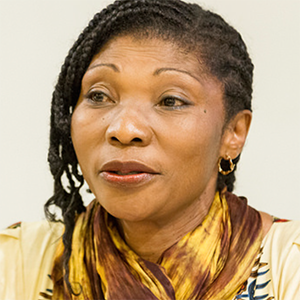 |
Cécile Ndjebet
President, African Women’s Network for Cécile Ndjebet is an agronomist and social forester by profession. A gender specialist and women’s leadership trainer and adviser, she holds an MSc in social forestry from Wageningen Agricultural University in the Netherlands. With 32 years of field experience, Cécile started her professional career as a Cameroonian civil servant before joining civil society organizations. To promote women’s direct and effective participation in natural resources management in Africa, Cécile founded in 2009 the African Women’s Network for Community Management of Forests (REFACOF), a regional network with 17 countries from West and Central Africa. For the past six years, Cécile has mobilized rural women in mangrove restoration in coastal areas of Cameroon. In 2012, Cécile was elected Climate Change Champion of the Central African Commission on Forests (COMIFAC). At an international level, Cécile is an active member and well-known advocate among global women’s networks. |
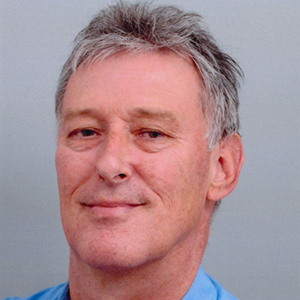 |
René Boot
Director Tropenbos International René Boot is director of Tropenbos International, which aims to improve governance and management of tropical forests through research, capacity building and promoting dialogue. He is a special professor in sustainable tropical forest management at Utrecht University, The Netherlands, where he teaches research policy linkages to MSc students and supervises PhD students in forest ecology and forest dependent livelihoods. Mr. Boot studied ecology and graduated from a PhD in 1990 at Utrecht University. After graduating he worked for 15 years in research and capacity building projects in the field of sustainable forest management in Guyana and Bolivia. He is a member of the editorial board of the Journal of Tropical Ecology. He is also Chair of the Treub Maatschappij, a society that promotes academic research in the tropics, and Chair of the Tresor Foundation, which manages a tropical forest reserve in French Guyana. |
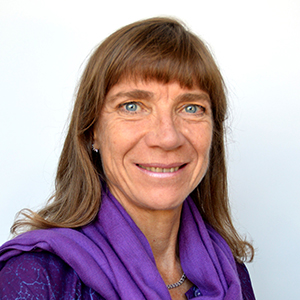 |
Kerstin Jonsson Cisse
Global Economy and Environment Head, Swedish International Kerstin Jonsson Cissé is head of the Global Economy and Environment unit at the Swedish International Development Cooperation Agency (Sida). She is currently in charge of the implementation of two global thematic strategies, Economic Sustainable Development (including food security and agriculture) and Sustainable Environment and Climate Change. She holds a doctoral degree from the Swedish University of Agriculture Sciences with a focus on soil science and agroforestry. Her thesis was based on research in Burkina Faso and Tanzania with field work on soil science under nitrogen fixing trees. She has spent 11 years in West Africa in different positions working with agroforestry, humanitarian and post-conflict development cooperation, and has a special interest in the Sahelian region and resilience. |
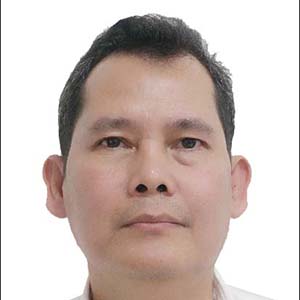 |
Agusdin Pulungan President, Indonesian Farmer and Fisher Society Organization (WAMTI) Agusdin Pulungan holds an MSc in sociology from the University of Indonesia and an agricultural engineering degree from Andalas University. He is an experienced chairman with a demonstrated history of working in the farming industry, and is skilled in strategic planning and sustainable agriculture. He is currently President of the Indonesian Farmer and Fisher Society Organization (WAMTI). He is active in advocating for better policies for small-scale farmers and fisher folk as well as developing empowerment actions. He has been a resource person for various Indonesian government ministries, and has participated in various international workshops, forums and conferences, such as for the Food and Agriculture Organization of the United Nations (FAO), Asia Pacific Economic Cooperation (APEC), the International Federation of Agricultural Producers |
| Discussion with the room | |
| Wrap-up | |
Organized by:
- CGIAR Research Program on Forests, Trees and Agroforestry (FTA)
- Food and Agriculture Organization of the United Nations (FAO)
- Government of the Netherlands
- Tropenbos International
- Swedish International Agricultural Network Initiative (SIANI)
- MARS, Incorporated


